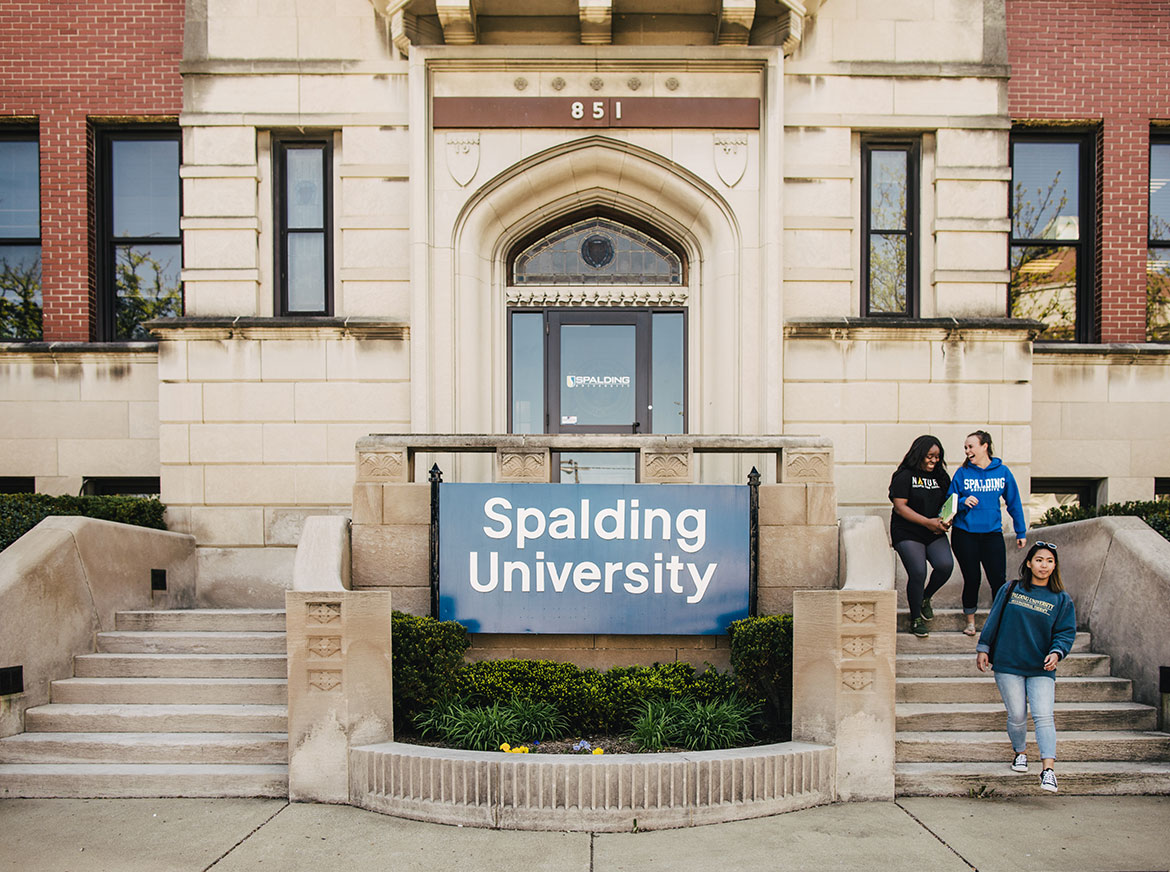Learn more about the Doctor of Social Work program.
January 30, 2025 @ 6:00 pm - 7:00 pmInfo Session: DSW
Learn more about the Doctor of Social Work program.
March 12, 2025 @ 12:00 pm - 1:00 pmInfo Session: DSW

Spalding University has once again received a grant of more than $1 million from the U.S. Department of Health and Human Services’ Health Resources and Services Administration (HRSA) to support advanced-level psychology and social work students who provide behavioral health services in integrated primary care settings in medically underserved areas of Louisville.
The $1,048,827 grant, which comes via the federal Behavioral Health Workforce Education and Training (BHWET) program, will fund stipends over four years to Spalding students pursuing a doctorate in clinical psychology (PsyD) or a master’s degree in social work (MSW). It continues BHWET support that Spalding has received since 2017 through the university’s Interdisciplinary Behavioral Health Scholars Program. The stipends assist in the recruitment and retention of future behavioral health professionals who do their training work in medically underserved areas.
Over the four-year cycle, a total of 36 Spalding PsyD and MSW students will provide assessments, counseling, addiction therapy and a range of other services at five Louisville health and wellness sites that also provide primary medical care. In addition to providing in-person services, the program aims to train students in and familiarize patients with the use of telehealth.
The practicum and fieldwork sites partnering with Spalding are Family Health Centers’ Iroquois, Portland and Southwest branches; the Shawnee Christian Healthcare Center; and the Smoketown Family Wellness Center. These sites also provide pediatric services and support at-risk youth, which is a focus of the Spalding program. The sites are located in parts of the community that have a shortage of behavioral health providers.
School of Professional Psychology Professor Dr. Steve Katsikas, who will continue to direct the project on behalf of Spalding, said the university’s HRSA BHWET grant “represents an incredible investment in the future workforce that will have immediate and long-term benefits to Louisville and surrounding areas.”
“The majority of health conditions that impact people have a behavioral component, including smoking, diabetes, asthma, substance misuse, COPD, obesity and chronic pain,” Katsikas said. “Professionals working as a part of an integrated team can help prevent or address these and other concerns in a setting that is accessible and familiar to patients. We are thrilled to be able to support these students in their training and bring healing and help to our community.”
School of Professional Psychology Chair Dr. Brenda Nash said integrated primary care (IPC) settings are projected to be a “major avenue of practice for psychologists in the near future.” The training opportunities provided by the BHWET-supported project will make Spalding PsyD students more competitive for IPC internships and, ultimately, those emerging jobs, she said.
Spalding PsyD students selected for the program will receive $25,000 annual stipends, and MSW students will receive $10,000 stipends.
“The fact that we are able to train students in this model and provide grant-funded stipends to them is huge as it helps cut down students’ debt load as they are learning marketable skills,” Nash said. “We do everything we can to find opportunities and partnerships to help reduce students’ debt. We are thrilled and honored to have received the HRSA Behavioral Health Workforce Education and Training grant for the second cycle in a row. It shows our commitment to training and supporting students, and it shows the confidence that HRSA has in us to train the next generation of psychologists.”
School of Social Work Chair Dr. Shannon Cambron called the grant “a game-changer for both our Master of Social Work students and the community they serve.”
“Students are given the opportunity to prepare for the work they’re called to in an interdisciplinary setting where they can holistically consider the needs and strengths of the client,” she said. “The tuition support means they graduate with far less financial burden, which opens more broadly their avenues of service to the community. This grant and those who participate in it are living examples of Spalding’s mission to meet the needs of the times. It’s an exciting reflection of what truly being a diverse community of learners can mean for the student, the university and the community.”
The HRSA grant also supports a faculty clinical coordinator and student supervisors. Dr. Sarah Shelton from the School of Professional Psychology will continue to serve as the clinical coordinator and PsyD supervisor. School of Social Work Assistant Professor Glynita Bell is the MSW supervisor.
Note: This project is supported by the Health Resources and Services Administration (HRSA) of the U.S. Department of Health and Human Services (HHS) as part of an award totaling $1,048,827 with 0 percentage financed with non-governmental sources. The contents are those of the author(s) and do not necessarily represent the official views of, nor an endorsement, by HRSA, HHS, or the U.S. government. For more information, please visit HRSA.gov.
Learn more about the Doctor of Social Work program.
January 30, 2025 @ 6:00 pm - 7:00 pmInfo Session: DSW
Learn more about the Doctor of Social Work program.
March 12, 2025 @ 12:00 pm - 1:00 pmInfo Session: DSW